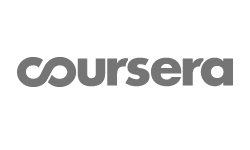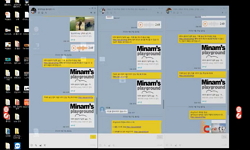Purpose: The purpose of this study was to identify the relationship among hesitation factor of questions, critical thinking disposition, and problem solving. Methods: Data were collected from 370 students at a university in D city using a structured q...
http://chineseinput.net/에서 pinyin(병음)방식으로 중국어를 변환할 수 있습니다.
변환된 중국어를 복사하여 사용하시면 됩니다.
- 中文 을 입력하시려면 zhongwen을 입력하시고 space를누르시면됩니다.
- 北京 을 입력하시려면 beijing을 입력하시고 space를 누르시면 됩니다.
https://www.riss.kr/link?id=A100708419
- 저자
- 발행기관
- 학술지명
- 권호사항
-
발행연도
2015
-
작성언어
Korean
- 주제어
-
KDC
512
-
등재정보
KCI등재,SCOPUS
-
자료형태
학술저널
-
수록면
320-329(10쪽)
-
KCI 피인용횟수
7
- DOI식별코드
- 제공처
-
0
상세조회 -
0
다운로드
부가정보
다국어 초록 (Multilingual Abstract)
Purpose: The purpose of this study was to identify the relationship among hesitation factor of questions, critical thinking disposition, and problem solving. Methods: Data were collected from 370 students at a university in D city using a structured questionnaire from April 1 to April 15, 2015. It was analyzed with frequency analysis, descriptive statistics, t-tests, ANOVA, and correlation analysis. Results: Subjects scored an average of 2.62±.52 for hesitation factor of questions, 3.53±0.42 for critical thinking disposition, and 3.44±0.44 for problem solving. There were significant differences in the three variables according to satisfaction with major, self-expression, and interpersonal relationships. In addition, hesitation factor of questions exhibited a significant difference between genders. Hesitation factor of questions had a negative relationship with critical thinking disposition (r=-.23, p<.001) and with problem solving (r=-.34, p<.001). In addition, there was a statistically significant positive correlation between critical thinking disposition and problem solving (r=.69, p<.001). Conclusion: In order to improve critical thinking disposition and problem solving, we need to generate a lot of questions to the student’s inside. We also need to develop appropriate teaching methods so that this can be expressed by the actual question coming from the control hesitation factor of questions.
참고문헌 (Reference)
1 강승희, "초등학생의 비판적 사고 성향과 비판적 사고 기능, 창의적 성향, 사고양식간의 관계 연구" 한국열린교육학회 13 (13): 1-27, 2005
2 양미경, "질문 창출 노력의 교육적 의의와 한계" 한국열린교육학회 15 (15): 1-20, 2007
3 전숙경, "수업언어로서의 ‘질문’에 대한 이해" 한국교육철학학회 50 (50): 165-187, 2010
4 박상준, "비판적 사고력의 신장을 위한 초등 사회과의 질문법에 관한 연구" 한국사회과교육연구학회 45 (45): 121-152, 2006
5 박승미, "간호사의 임상 의사결정능력 영향 요인 - 비판적 사고 성향을 중심으로 -" 한국간호과학회 37 (37): 863-871, 2007
6 지은주, "간호대학생의 자아탄력성, 의사소통능력과 문제해결능력" 한국간호교육학회 19 (19): 571-579, 2013
7 양승애, "간호대학생의 비판적 사고성향과 문제해결능력" 간호행정학회 16 (16): 389-398, 2010
8 윤진, "간호대학생의 비판적 사고 성향에 관한 연구" 간호행정학회 14 (14): 159-166, 2008
9 Yang, M., "The study on the way of practicing and principles of dialogue type’teaching methods" 12 (12): 13-31, 2002
10 Kim, S., "The structural relationship among learners’question process, hesitation factor of questions and high-order thinking during college lectures" Sookmyung Women’s University 2014
1 강승희, "초등학생의 비판적 사고 성향과 비판적 사고 기능, 창의적 성향, 사고양식간의 관계 연구" 한국열린교육학회 13 (13): 1-27, 2005
2 양미경, "질문 창출 노력의 교육적 의의와 한계" 한국열린교육학회 15 (15): 1-20, 2007
3 전숙경, "수업언어로서의 ‘질문’에 대한 이해" 한국교육철학학회 50 (50): 165-187, 2010
4 박상준, "비판적 사고력의 신장을 위한 초등 사회과의 질문법에 관한 연구" 한국사회과교육연구학회 45 (45): 121-152, 2006
5 박승미, "간호사의 임상 의사결정능력 영향 요인 - 비판적 사고 성향을 중심으로 -" 한국간호과학회 37 (37): 863-871, 2007
6 지은주, "간호대학생의 자아탄력성, 의사소통능력과 문제해결능력" 한국간호교육학회 19 (19): 571-579, 2013
7 양승애, "간호대학생의 비판적 사고성향과 문제해결능력" 간호행정학회 16 (16): 389-398, 2010
8 윤진, "간호대학생의 비판적 사고 성향에 관한 연구" 간호행정학회 14 (14): 159-166, 2008
9 Yang, M., "The study on the way of practicing and principles of dialogue type’teaching methods" 12 (12): 13-31, 2002
10 Kim, S., "The structural relationship among learners’question process, hesitation factor of questions and high-order thinking during college lectures" Sookmyung Women’s University 2014
11 Lee, J. W., "The role of universities and creative economy" 181 : 22-29, 2013
12 Phillips, N., "The questioning skills of clinical teachers and preceptors : a comparative study" 33 (33): 523-529, 2001
13 Heppner, P. P., "The development andimplications of a personal problem-solving inventory" 29 : 66-75, 1982
14 Lee, K. S., "The Effects of the use-frequency of higher order questions on higher order thinking and student achievement in social studies education of Korean high schools" Seoul University 1997
15 Park, D. R., "The Effect of Question-generating strategy on improvement of problem solving ability in social studies" Seoul National University of Education 2012
16 Norris, S. P., "Testing for the disposition to think critically" 14 (14): 157-164, 1992
17 Chosunilbo, "No question, no eyecontact with teachers...students blame teachers, teachers blame students"
18 Lim, H. Y., "Learner`s perception on the teachers` questioning behaviors in university general education class" 26 (26): 129-148, 2010
19 Lee, H. J., "In seoul national university, who get A+" Dasanedu 2014
20 Jo, H. H., "Graduate school of the relationship between self-leadership, goal commitment and critical thinking of nursing students having experience in a simulation practicum and their problem solving ability" Kyung Hee University 2015
21 Ryu, J. H., "Exploratory analysis of learner generating questions" 30 : 109-129, 2007
22 King, A., "Effects of training in strategic questioning on children’s problem-solving performance" 83 (83): 307-, 1991
23 Pate, M. L., "Effects of regulatory self questioning on secondary level students’ problem solving performance" 52 (52): 72-84, 2011
24 Yoon, Jin, "Development of an instrument for the measurement of critical thinking disposition : in nursing" Catholic University 2004
25 Korean Sociological Association, "Case analysis and solution through a question qualitative case study “question disappeared in the classroom”"
26 Perkin, D. N., "Beyond abilities : a dispositional theory of thinking" 39 (39): 1-21, 1993
27 Kwack, J. Y., "An approach on questioning learning and teaching." Seoul University 2005
28 Hwang, C., "An analysis study on students' questioning behaviors and hinderance factors in university class" Yonsei University 2011
29 Hwang, S. Y., "A validation study of the problem solving inventory in the career decision scale of Korean university student" Yonsei University 2005
동일학술지(권/호) 다른 논문
-
간호대학 신입생의 행동유형에 따른 스트레스, 스트레스 대처방식 및 대학생활적응과의 관계
- 한국간호교육학회
- 강희영(Kang, Hee Young)
- 2015
- KCI등재,SCOPUS
-
- 한국간호교육학회
- 채선미(Chae, Sun-Mi)
- 2015
- KCI등재,SCOPUS
-
- 한국간호교육학회
- 김신향(Kim, SinHayng)
- 2015
- KCI등재,SCOPUS
-
- 한국간호교육학회
- 곽혜원(Kwak, Hye-Weon)
- 2015
- KCI등재,SCOPUS
분석정보
인용정보 인용지수 설명보기
학술지 이력
| 연월일 | 이력구분 | 이력상세 | 등재구분 |
|---|---|---|---|
| 2024 | 평가예정 | 계속평가 신청대상 (등재유지) | |
| 2019-01-01 | 평가 | 우수등재학술지 선정 (계속평가) | |
| 2016-01-01 | 평가 | 등재학술지 유지 (계속평가) |  |
| 2012-01-01 | 평가 | 등재학술지 유지 (등재유지) |  |
| 2009-01-01 | 평가 | 등재학술지 선정 (등재후보2차) |  |
| 2008-01-01 | 평가 | 등재후보 1차 PASS (등재후보1차) |  |
| 2006-01-01 | 평가 | 등재후보학술지 선정 (신규평가) |  |
학술지 인용정보
| 기준연도 | WOS-KCI 통합IF(2년) | KCIF(2년) | KCIF(3년) |
|---|---|---|---|
| 2016 | 2.49 | 2.49 | 2.81 |
| KCIF(4년) | KCIF(5년) | 중심성지수(3년) | 즉시성지수 |
| 2.87 | 3.05 | 3.548 | 0.42 |






 ScienceON
ScienceON DBpia
DBpia






